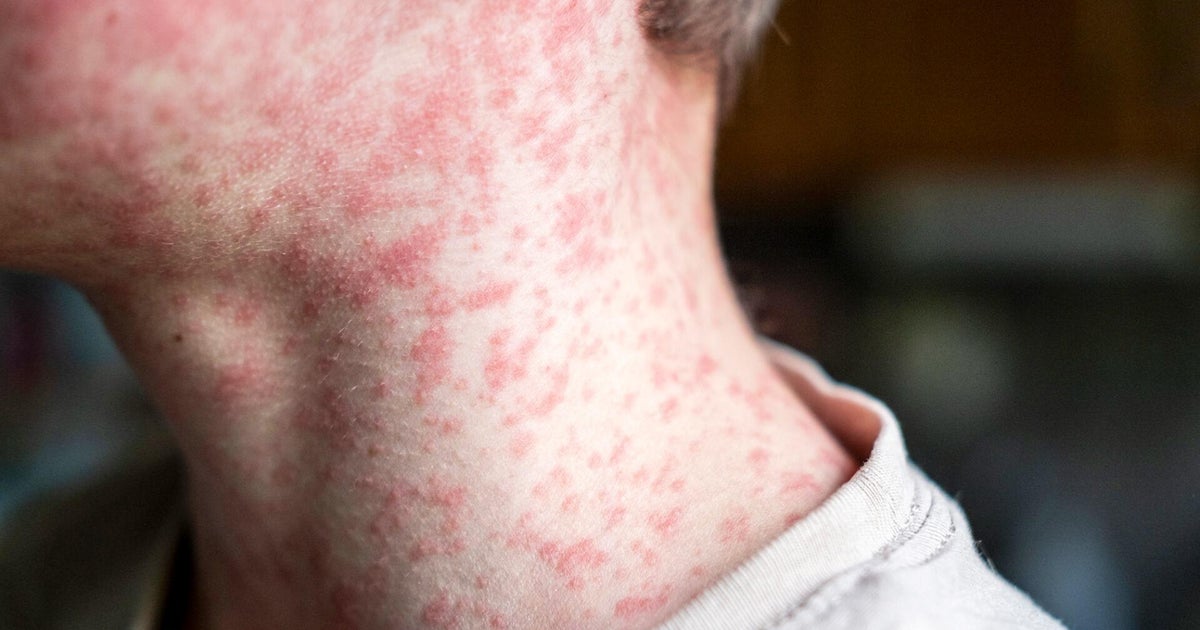Your guide to preventative health screenings you should get in your 40s
So you've reached the Big 4-0? It's time to celebrate — and to make plans for some preventative care and screenings to help keep your health on track.
CBS News HealthWatch has compiled a series of guides to help you know which preventative screenings should be on your list, starting with people in their 20s and in each decade through your 60s. Compared to those in their 20s and 30s, people in their 40s have some additional recommendations to consider, including mammograms and colon cancer screening.
So what should 40-somethings have on their preventative checklist? Here is a look at the guidelines experts recommend for people at average risk:
Vaccines in your 40s
In your 40s, it's important to make sure you're up-to-date on a few vaccines, including the Td or Tdap booster shot, which protects against tetanus and diphtheria, as well as the COVID-19 vaccine and annual flu shot, which are recommended for people ages 6 months and up.
Colon cancer screening in your 40s
At age 45, people should begin screening for colorectal cancer, according to the U.S. Preventive Services Task Force, an independent panel of national experts. This can be done via several different screening strategies.
"Obviously the gold standard still remains the colonoscopy, but Cologuard (a brand of at-home stool tests) is a great test," says Dr. Robert M. Biernbaum, chief medical officer for WellNow Urgent Care. The frequency of testing will depend on the test type and an individual's risk level.
In 2018, the recommended age to get a first colonoscopy screening was lowered to 45, from 50, for those at average risk, because rates of colon cancer have been increasing in younger age groups. If you're at increased risk, which includes having a family history or inflammatory bowel disease, talk to your doctor about being screened earlier.
Mammograms for women in their 40s
For women, your 40s is the age range when doctors recommend starting mammograms or other exams to screen for breast cancer, for those at average risk.
The latest draft guidance from the USPSTF says breast cancer screenings for women at average risk should be done every other year starting at age 40, 10 years earlier than the panel previously recommended in 2016. (It previously recommended women in their 40s make individual decisions about screenings based on their health history.) Other organizations already recommend annual mammograms at 40, including the American College of Radiology.
Sexual and reproductive health in your 40s
For women, cervical cancer screenings should continue on the same schedule as in your 30s, for those at average risk, the USPSTF recommends: "Screening every 3 years with cervical cytology alone, every 5 years with high-risk human papillomavirus (hrHPV) testing alone, or every 5 years with hrHPV testing in combination with cytology (cotesting)."
The American College of Obstetricians and Gynecologists recommends visiting an OB-GYN, at least once a year for a well-woman visit and deciding with your doctor how frequently to do a pelvic exam.
You may also want to talk to your doctor about menopause or perimenoupause, which is when the body is transitioning to menopause, marking the end of someone's reproductive years. Perimenopause can last anywhere from 7 to 10 years, throughout your 40s and early 50s, Dr. Jessica Shepherd, OB-GYN and chief medical officer of Verywell Health, previously told CBS News.
"The average age of menopause is 52, so during that perimenopausal timeframe is when you might start to have symptoms," Shepherd said, adding some may notice changes as early as their mid-30s in certain cases.
If you're postmenopausal in your 40s, ask your doctor about any additional tests you may want to consider, such as ovarian screening.
For men, the USPSTF does not recommend routine testicular cancer screenings; however, the American Cancer Society recommends testicular exams be incorporated into a male patient's annual physical exam or performed as a self-test at home.
For anyone who is sexually active, the CDC recommends getting HIV-tested at least once. Depending on risk factors, it is also recommends getting tested for other sexually transmitted diseases and infections, including hepatitis B and C. People should also be screened for whether they are at risk for HIV and should be on PrEP, a highly effective HIV prevention drug. See the CDC's website for a breakdown of specific recommendations.
More screenings to consider in your 40s
Heart health — The American Heart Association recommends getting your blood pressure checked every 2 years if it's below 120/80 mm Hg but more often if it's higher. Cholesterol levels should be checked every 4 to 6 years for average-risk adults.
"After age 40, your health care professional will also want to use an equation to calculate your 10-year risk of having a heart attack or stroke," the AHA says on its website.
Diabetes risk — Beginning at age 45, the AHA recommends testing for prediabetes and risk for future diabetes. "If tests are normal, it is reasonable to repeat testing at a minimum of 3-year intervals," the AHA notes. The USPSTF also recommends screening for prediabetes in the 40s and to assess whether someone should be on a statin, a cholesterol-lowering drug.
Skin health — To check for skin cancer, a yearly dermatological exam is recommended by the Skin Cancer Foundation.
Eye health — Chances are you've already had multiple comprehensive eye and vision exams before hitting 40, but if not, it's definitely the time to do so, according to the American Academy of Ophthalmology. "This is when early signs of disease or changes in vision may appear," its website notes. "It is important to find eye diseases early. Early treatment can help preserve your vision." The American Optometric Association recommends an eye exam at least every 2 years between the ages of 40 through 64.
Oral health — Oral exams and dental cleanings are also important to keep up with. According to the American Dental Association, people should schedule at regular intervals recommended by their dentist. For most people, this is typically twice a year.
Mental health — It's important not to neglect mental health check-ins. Doctors should screen for depression, anxiety and risk for suicide at annual check-ups.
The USPSTF also recommends screenings for intimate partner violence, unhealthy alcohol and drug use as well as tobacco use.
This guide is based on guidelines from health organizations and experts for people at average risk. Age and frequency of screenings may differ for individuals based on family history and personal risk factors. This does not take the place of your personal doctor's recommendations for your health.



